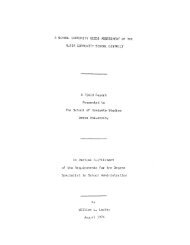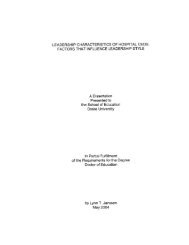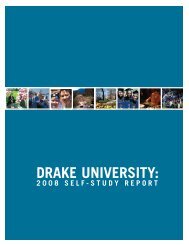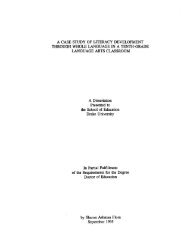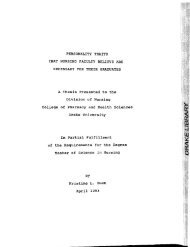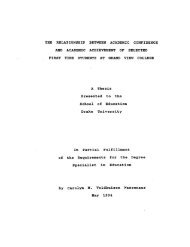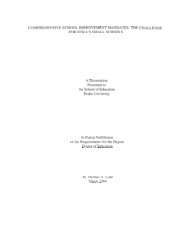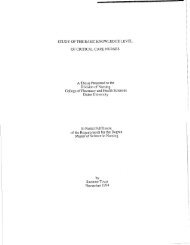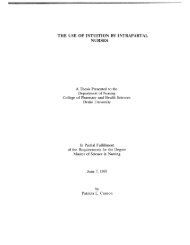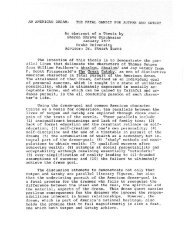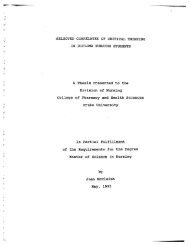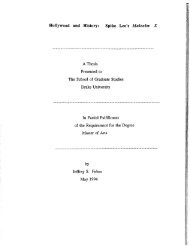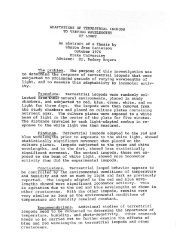LOCUS OF CONTROL ORIENTATION AND LEVEL - Drake University
LOCUS OF CONTROL ORIENTATION AND LEVEL - Drake University
LOCUS OF CONTROL ORIENTATION AND LEVEL - Drake University
Create successful ePaper yourself
Turn your PDF publications into a flip-book with our unique Google optimized e-Paper software.
Since the advent of Itotter's I-E LOC scale, researchers have related this<br />
concept to a variety of populations and human behaviors. Along with this trend<br />
has been the development of more specialized tools to measure LOC in relation<br />
to specific human experience (Lefcoun, 1982). Lefcoun extensively<br />
summarized and evaluated the work that had been done regarding this concept<br />
of LOC since Rotter's (1966) abstract. Lefcourt concluded that despite the<br />
many criticisms of Rotter's I-E scale, the research using this tool and tools<br />
developed from it are adequate and have yielded important data documenting a<br />
unique understanding of the effects of control perception.<br />
Lefcourt (1982) advocated continued discovery of the LOC concept<br />
using the current toois while encouraging an effort to develop tools that would<br />
measure the LOC concept in more specific domains of human behavior. One<br />
tool recommended by Lefcourt was the Health Locus of Control (HLC) scales<br />
(Wallston et al., 1976). Rock, Meyerowitz, Maisto and Wallston (1987)<br />
described this tool as "one of the more widely used and psychometrically sound<br />
examples of these sales" (p. 185). This 1 l-item Likert-type scale was designed<br />
to discover information about how the generalized expectancies of control affect<br />
a permn's health-related beliefs (Wallston et d., 1978). The scales classify the<br />
individual into one of two categories. The first category is labeled "health-<br />
externals," those who believe that determinants of theit health status are such<br />
things as luck, fate, chance or powerful others. The other classification is<br />
"health-internals," those who believe that health is determined by personal<br />
behavior (Wallston et al., 1976).



